| Feb 21 |
Archive for the 'Writing' CategoryAuthor Q&A: being polite to a hedge and embarrassed about researching mermaidsI answer lots of questions about writing: questions from readers, questions from teachers, questions from journalists, even questions from publishers. |
| Nov 19 |
Archive for the 'Writing' CategoryWhy retelling old stories is scary (and it’s not because of the wolf’s sharp teeth…)Retelling an old story which everyone already knows is a bit scary; retelling an old story almost no-one knows is even more of a responsibility. My first retelling of a well-known fairy tale – Little Red Riding Hood – has just been published. When I was writing it, I had to decide which bits of the many versions of Little Red I would weave together. I did a lot of research, then chose the elements which were most vivid and which worked best in my voice. So I hope I’ve retold a story which you will recognise, but which will also surprise you. A journalist recently asked me how I had changed the story, what spin or twist I had put in, but that wasn’t what I was aiming to do with this retelling. Every major plot element comes from one of the older tales, though I have told the story in my own words, and I’ve tried to make a few of the things which never made sense to me (why doesn’t she realise it’s a wolf in the bed, not her granny, for goodness sake? Can’t she tell the difference?) seem more plausible (she sees more of the wolf each time she lets extra light into the room: opening the curtains, lighting the fire etc.) But it’s a huge responsibility retelling a story like Little Red Riding Hood. Children already know it, and if you write something which differs from the version they know, they might think it’s wrong! (Which can prompt interesting discussions with kids about how traditional stories are passed on and changed.) Also, this book, with Celia Chauffrey’s gorgeous pictures, might over the years become some children’s very first experience of Red Riding Hood, so when they read other versions they might think my version is the right one and other versions are wrong… That’s a big and scary responsibility! But I’m very glad that this story of a tricksy, talking, toothy, people-eating wolf is a story most children already know. Because if they didn’t, they’d probably find it far too scary and gory to enjoy it! I’m now also retelling some stories which aren’t so well known: six animal tales from around the world (two already published, about a tortoise and a tiger, another four in the next couple of years, including a bear and a fox); a collection of Scottish folktales (coming out next summer, which contains stories I’ve never seen in other illustrated collections); and a collection of heroine stories from around the world (most of which are very obscure.) And that’s a completely different kind of responsibility. Because I do change stories when I tell them out loud. I deliberately change them so they make sense in my head, so they work in my voice, so they are dramatic in the way that I like a story to grab and hold the attention of an audience. Therefore the story I tell is never exactly as it was when it was written down, a hundred, a thousand or four thousand years ago. And that story, the one I tell out loud, the one I’ve changed to become my story, is the one I write down. I’m always quite honest about that, but now these versions are being printed and published, available on paper for anyone to read, forever… that is a serious responsibility. With Little Red Riding Hood, if I make a minor change, I know that kids will see another half dozen versions over the course of their reading lives, they will compare those different versions, realise there are many ways to tell a story and decide which is their favourite. But when they read my retellings of the untrustworthy Korean tiger or the Witch of Lochlann or Inanna tricking the god of wisdom, they might never see that story anywhere else. My version will be the only version they know. And that’s a really heavy responsibility. But I’m not worrying too much about it. These are great stories, I’m writing them as well as I know how, I’m really excited about sharing them and I want you to enjoy reading them. Then if you want to study them more deeply by reading the ancient originals, I’m quite happy to point you in the right direction! Here is the gorgeous front cover of LRRH, and I’ll update on you on the other retellings nearer the time! |
| Oct 04 |
Archive for the 'Writing' CategoryUnexpected BearsI visited Traquair Maze again last week, filming an interview about Maze Running. I’ve been to the maze several times now, the first couple of times to research the novel, then another couple of times for press and publicity things (research is far more fun!) But this time, something had changed. |
| Sep 25 |
Archive for the 'Writing' CategoryKids bringing stories to lifeI’m often asked at author events whether my own children give me ideas or help me write my books. |
| Aug 22 |
Archive for the 'Writing' CategoryWho is your favourite Fabled Beast?At the Edinburgh Book Festival earlier this week, I was sitting at a signing table looking at a long line of First Aid For Fairies fans (I knew they were fans, because most of them were cuddling a stack of slightly dog-eared books) and I had to think of something personal, interesting and appropriate to write in each book. |
| Jun 08 |
Archive for the 'Writing' CategoryMaze Running – Written on the RunI just looked at the very first folder for Maze Running, created when it was still called First Aid Four, and when I was working on each chapter individually, rather than in one big manuscript. Looking at the names of the chapter files, you would think that I never sat at my own desk:
In Maze Running, I send Helen and the fabled beasts on seven different quests, missions and rescues, to the south, north and west of Scotland. But I’ve realised that the book was written in even more places than that! So, does this mean I spend too much time away from my desk? Am I not taking my writing seriously enough? I don’t think so, because I don’t need a desk to write – I just need my netbook, or a pen and a bit of paper. Or I can even just scribble on my other hand, or a napkin… Does it mean I’m only inspired to write when I’m out and about, rather than at my desk, and should get out more often? I don’t think that either! I write a lot at home too, but because I’m not transferring those files from one computer to the other, I don’t give them such detailed names. It really just means that my three jobs – being a writer writing, being a writer talking about writing and being a mum – are all part of the same life, rather than neatly separated. So I take whatever book I’m writing with me everywhere I go, and write it wherever I can. It also shows that I can have really good ideas when I’m sitting outside a ballet class, or in a cold train station. Even if I am typing with gloves on. I write fast-moving action and set my books all over Scotland, so writing on the run and in lots of different places is probably very good for my stories. And I write for 8–12 year olds, so working out how I’m going to start the next chapter just after speaking to P5 about cliff hangers and just before speaking to P6 about chase scenes, is probably the best way to write! I wonder where I’ll write the next book? tools for writing on the run: netbook, notebook, napkin |
| May 22 |
Archive for the 'Writing' CategoryEnding a successful series. Is this the daftest thing I’ve done as a writer?It’s less than a month until the launch of Maze Running, the fourth and final book in the First Aid for Fairies series. The fourth and FINAL book. And right now, I’m asking myself: Why is it the final book? This is a successful series, with lots of fans, with recognisably stunning covers, set in a world where I could easily have found dozens more adventures. So why have I stopped? Was I bored? (No! I love this world and these characters.) Did my publishers say, nah, that’s enough thanks. (Not to me…) Was I running out of readers? (Nope, not that either!) So why, as a new-ish writer, trying to build a career as a real proper writer, have I stopped writing a successful series? It’s a bit daft, really. I have strong characters I enjoying working with, and a formula which could repeat endlessly in different parts of Scotland, with different baddies and different magic. But that’s really the point: I don’t want it to become a formula. I want each of my books to be original and different, not to feel tired and samey. And while I don’t think I was anywhere near that with the First Aid series, I suspect I would have got there before I hit double figures! So I wanted to stop while the books were getting steadily stronger and more exciting. Some of my readers are a bit upset, even politely annoyed, that I’m ending the series here, but actually that’s quite good (sorry!) because I want to leave you wanting more. Perhaps you’ll go on to make up your own stories set in the fabled beasts’ world. I also hope you’ll wait eagerly for whatever I write next… Another major reason for ending the series here is that my characters kept growing up. Because I have been very specific about each adventure’s time of year, there have been months between each book, and Helen and her friends are now all more than a year older than they were in First Aid For Fairies And Other Fabled Beasts. If I kept writing about them for another few months, and honestly reflected their lives and concerns, I wouldn’t be writing for 8-12 year olds, I’d be writing for teenagers, which I’m happy to do, but not within this series. Also I don’t want to get too comfortable with these characters, nor do I want to tread the same paths with them again. I know them really well, and I’ve taken several of them on tough emotional journeys, as well as dangerous quests. I don’t want to artificially push them backwards just so we can watch them develop all over again. (Yes, Yann, I’m talking about you. And Lee and Rona, and maybe even Helen.) I want to meet and work with NEW characters. Though I really am going to miss these ones. I don’t want to be pigeonholed as a writer either. I want to write lots of different kinds of books (which I’ve possibly achieved already with picture books, retellings and teen novellas.) But I want to write other novels too – my only standalone novel Rocking Horse War sometimes gets a bit lost amongst Helen’s adventures, so I want to concentrate on other ideas like that for a while. So, sorry to all the First Aid for Fairies fans out there. No more books about Helen healing her fabled beast friends at specific seasons of the year. This is the end. But I think it’s best to go out with a bang!
And here’s the cover of Maze Running. What do you think?
|
| May 02 |
Archive for the 'Writing' CategoryWhy write picture books AND novels?I’m sitting on the fence today, not sure if I’m a picture book author or a novelist. I launched my new picture book, Orange Juice Peas, at the end of April and I’m already starting to think about the launch of Maze Running in June. So I’m going to spend the month of May being a wee bit confused about who I am. Do I write books about peas, bananas, babysitters and giggling, or do I write books about monsters, magic, danger and quests? The answer of course is that I do both, often on the same day, and that I only occasionally get confused. But why do I do both? And is there any difference, for a writer, between them? The main difference for me is that I spend so much time with the characters in a novel, often months, sometimes years, that I know them as well as my family and friends, and care about them almost as much too. I don’t spend nearly as long with the characters in a picture book, so however fond I am of them I don’t know them as well. In fact, I don’t really know them at all until I see their pictures. That feels like the moment I first meet them, which can be a year or so after I write the book! Also, I don’t have to describe the characters in a picture book, or everything that they do, because the reader can see them on the page (I may have described the characters and the action in illustrator’s notes when I came up with the idea, but those notes aren’t part of the finished book.) In a novel I have to give the reader a lot more detail, because the reader has to make the pictures of the characters and the action in their mind (the very best kind of pictures, I think!) And the words in a picture book are still a work in progress until they are married with the pictures, because the illustrations are just as much a part of the story as the text. The cover of a novel, however, is designed to draw you into the story, it’s not part of the story. And why do I write both? Because I always want to find the best way to tell a story. When a “what if” pops into my head, I want to explore it in the best way for that question. If the question is about whose bottom this is, or who is going to eat what ice-cream, then it’s probably a picture book; if the question is about why someone has just kidnapped your brother and sisters to use in a magic spell, or why there’s a thieving jellyfish trying to strangle a camp full of scouts, it’s probably an adventure novel! Also if there is only one problem to solve it’s probably a picture book, if there are lots of problems it’s probably going to take a bit longer! So it’s usually clear to me whether a story idea is a novel idea where I will build the pictures for the reader to see, or whether it’s a picture book idea where I build the structure for an artist to create the pictures. So, picture books and novels look very different on the shelf, and they are quite different for the writer too. And right now I have a picture book idea AND a novel idea in my head. Which should I go and scribble down first? Here are all my picture books and all my novels so far. They do look quite different! Which pile looks more fun to write? |
| Mar 26 |
Archive for the 'Writing' CategoryWhy editing can be even more emotional than writingI’m just recovering from the most emotional edit I’ve ever done. |
| Mar 05 |
Archive for the 'Writing' CategoryOriginal Questions From School VisitsI’m in the middle of lots of school visits around World Book Day, which you’d think would only last a ‘Day’ but seems to last at least a fortnight! One of the best things about lots of school visits is lots of great questions from pupils. I answer questions at the end of every session, so I probably answer dozens of questions a week, possibly even hundreds a week at this time of year. What amazes me is I’m still being asked new, original and surprising questions. There are questions which come up pretty much every time (when did you become a writer, how many books have you written, what’s your favourite book?) but I’m impressed that kids are still asking questions which I’ve not heard before, questions which make me think hard about my writing process. The best question I got on World Book Day was from a pupil at Stockbridge Primary in Edinburgh, who asked: “What’s more important for a writer, imagination or knowledge?” I thought that was fascinating, because creative writing teaching often concentrates entirely on imagination, but a story won’t be convincing if it’s full of errors. On the other hand, if you have lots of facts, but no flash of inspiration bouncing off the facts, then you haven’t got a story. I came to the conclusion that both imagination and knowledge are vital, but that I start with imagination then fill the gaps with research. New writers are often told to “write what you know” but if I only wrote what I know, then I’d write boring books about making packed lunches. Instead I allow myself to imagine stories about injured centaurs or living rocking horses, then I research the time or place or biology and write about the NEW stuff I know. Another question I was asked recently at Westercommon Primary in Glasgow was: “How do you know when a story is finished?” That’s a brilliant question, because we spend a lot of time thinking about good ways to start stories, and we may not think hard enough about how to finish them. I explained that my stories are finished when my characters have solved the main problem. Because it isn’t a story without a problem: a mystery, a quest, a baddie to be defeated. You spend the story trying to solve the problem, and once it’s solved, the story is over. Boom. The End. A pupil at St Mary’s in Glasgow asked: “When you reach a certain age, will you want someone else to continue your work?” That made me laugh, because I never want to reach a certain age… But the serious point we discussed was whether someone else could carry on my work, indeed any writers’ work, or whether it’s individual to us. If a person’s life work is campaigning for animal rights, or planting a forest, or running a jam factory, someone else probably could continue it, but no-one else could write my stories. Not exactly the way I write them. Because my stories come out of my thought processes, my experiences, my way of research, and my own individual (hard to explain and impossible to replicate) flashes of imagination. That’s the magical thing about writing: we all write differently. So no, if I ever reach a certain age and stop writing, that will be it. No more Lari Don books. I’d better get a move on and write another one while I still can! I’ve been asked other fascinating questions in the last few weeks, but my author events are noisy and fast moving, so I don’t often remember the exact questions afterwards. If you asked an original question which I’ve not mentioned – sorry! And if you can come up with a question which you think no-one has ever asked me before, please do ask it! You don’t have to wait until next World Book Day or until I visit your school, just post a comment here or email me on: info@laridon.co.uk And if any other writers want to share the best or most original questions they’ve been asked, I’d love to read them! |
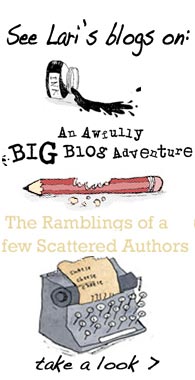
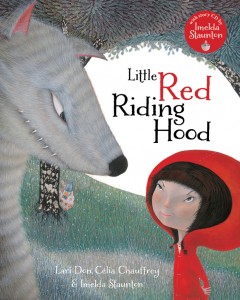
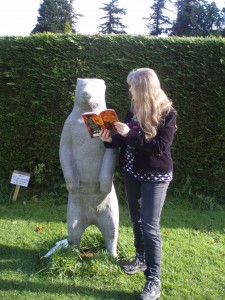
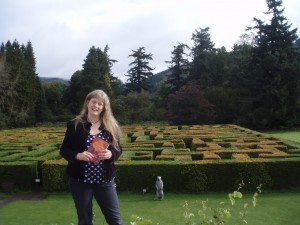
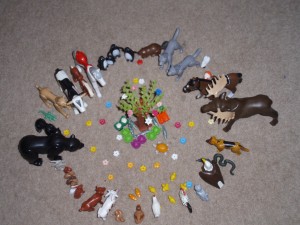
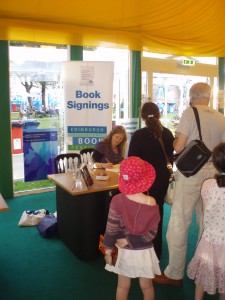
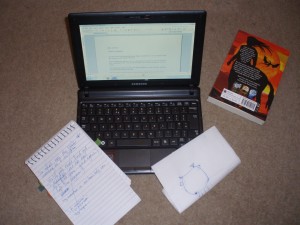

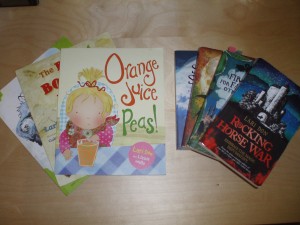
Recent Comments